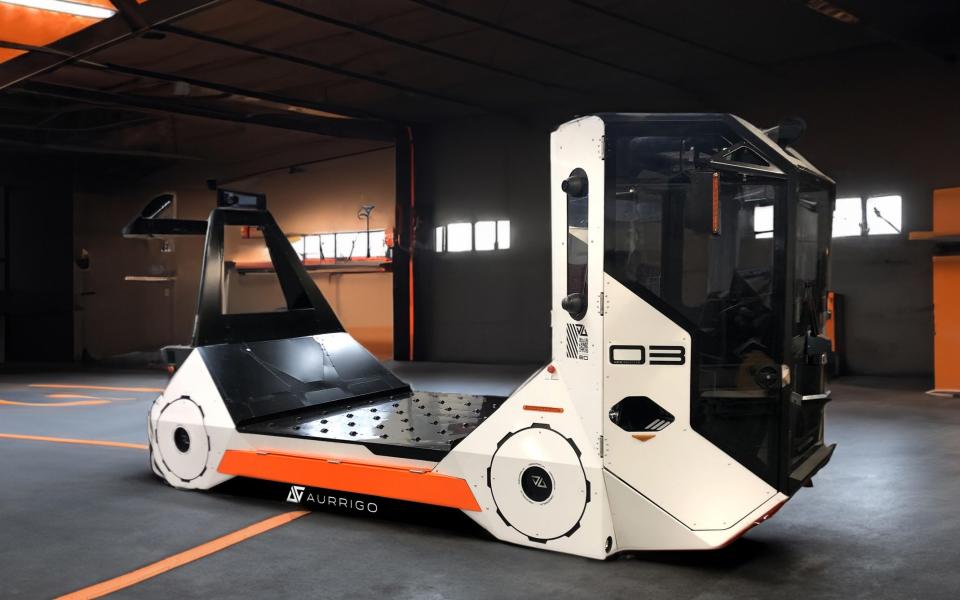British Airways to use robot baggage handlers at Gatwick

British Airways and its parent company are to use self-driving robot baggage carriers at a UK airport for the first time as the aviation industry grapples with staff shortages.
International Consolidated Airlines Group (IAG), which owns BA, will deploy driverless baggage tugs at Gatwick and Cincinnati airports as soon as May, The Telegraph can reveal.
The autonomous vehicles will ferry baggage containers from terminal buildings to awaiting aircraft, where they will then be stowed using human-operated lifts.
BA has previously tested the vehicles at Heathrow Airport but they will now enter full-time service for the first time. Only one is expected to be deployed at Gatwick to begin with but the number could rise if the trial is successful.
The pioneering machines have been developed by Coventry-based Aurrigo, which has been testing its fleet at Changi Airport in Singapore since the pandemic.
Some come equipped with robot arms that can load and unload containers of baggage themselves. The tugs range in cost from about £100,000 to £250,000 each.
It is hoped the devices could improve efficiency, safety and aircraft turnaround times while also addressing staff shortages across the aviation industry since Covid, particularly in baggage handling.
Professor David Keene, Aurrigo’s chief executive, said: “You need 90pc less labour and equipment, so it is very efficient.
“Airlines want to be able to offer consistently good standards from a customer point of view as well. Often you’re in the airport building and it’s fantastic, you’re on the plane and it’s quite modern, but then you get off and it’s lotto time at the baggage carousel.
“First of all, you might have a long wait. Secondly, your bag might not have made it - and that really dents the customer experience.
“Everyone tends to blame the airline, because that’s who you’re flying with, but it’s not actually the airlines handling the bags in a lot of cases.
“So taking that back and being able to own the customer experience is a really important part of it.”
Professor Keene said the highly controlled nature of airports made them ideal places to deploy self-driving technology.
Other potential uses for the machines could include running shuttle buses from airport car parks or bus transfers for passengers between planes and airport terminals.
Steve McGowan, senior vice president for Airport Futures at IAG, said: “IAG is exploring innovative ways to help its airlines run their operations as smoothly and punctually as possible.
“We are working with Aurrigo to trial the use of autonomous baggage trollies, to help support the work of the fantastic baggage teams at our group airlines and our ground handling partners.”
Aurrigo was founded in 1993 by brothers David and Graham Keene and originally focused on parts for the car industry.
It is now branching out into autonomous vehicles, having developed its own robots and software with the help of UK government grants.
The London-listed company has set its sights on aviation because of the huge potential for robot baggage handling to be introduced at hundreds of airports around the world.
Using its software, Aurrigo creates a 3D “digital twin” of an airport, which is then used by the robots to learn local routes and navigate potential hazards.
Professor Keene said: “We’re now going to Schiphol [airport] in Holland, Munich and Stuttgart in Germany - they’re coming at us at a massive rate.”
He said the technology initially faced opposition from many labour unions but claimed this has recently eased.

 Yahoo Finance
Yahoo Finance 